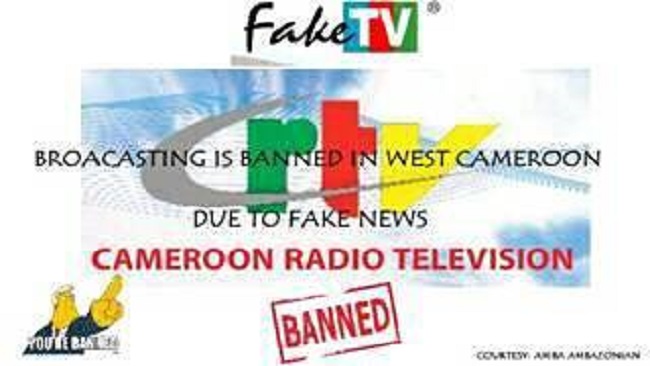French Cameroun: 8 CRTV barons arrested in Yaounde
Eight executives of the Cameroon Radio and Television (Crtv), have been detained at the Kondengui Central prison in Yaounde. Cameroon Intelligence Report was reliably informed that the police action is linked to the Amadou Vamoulke affair. The former general, Vamoulke has been languishing in Kondengui since July 29, 2016.
The eight men and women were indicted and placed under a remand warrant last Friday, after a hearing at the Special Criminal Court in Yaoundé. They are prosecuted for coercion of embezzlement of public funds with the former general manager of the Cameroon Radio and Television (Crtv), Amadou Vamoulke.
While the President Biya’s court had initially charged him for a presumed diversion of 2.8 billion Fcfa corresponding to the deficit of “postponement of cash payments” during his time at the head of CRTV in January 2005, Amadou Vamoulke now faces a new charge of 25 billion FCFA.
The new indictment follows an audit commissioned by Charles Ndongo, the current general manager of the Crtv. According to information released by the Special Criminal Court, the malpractices concerns the acquisition of rights of re-transmission of football matches and the management of fuel vouchers.
Depicting the Special Criminal Court established to prosecute alleged corrupt government officials and the several Alibabas responsible for pilfering from the public treasury as the President’s court is no misnomer. We call it the President’s court because it is one instrument of power through which the President is reining in on perceived opponents from within his CPDM power conduit. An attribute of a genuine court is the fairness of the trial proceedings in cases which are brought before the court for trial. It is not the number of convictions entered against accused. A court is legitimate and recognized as such because of its exercise of judicial, executive, legislative and administrative independence. A court that is independent must be accessible to all citizens after all, is equality before the law, not a constitutionally protected value? The Special Criminal Court is lacking in these attributes of impartiality, judicial independence and accessibility. It is perceived more as the President’s Court than a Court of Justice.
Establishing this court was President Biya’s way of saving himself the embarrassment of being humiliated during his perennial trips abroad as the President of the most corrupt countries in the world. This ranking of the country as the most corrupt or one of the most corrupt countries had a potential to hamper President Biya’s personal pecuniary interests far from the borders of Cameroon. There was therefore a personal interest need to establish the court. Another personal interest need was to avail himself of a legal tool under his direct control to consolidate absolute power, blackmail potential rebels and competitors within the system and to stifle any form of institutional opposition. He perceived the court as a tool with which to whitewash his more than thirty years of corrupt governance and the rape of the economy.
With the war against Boko Haram, the fight against corruption using the Special Criminal Court has afforded Paul Biya justification contest in the next institutionally flawed elections in order to eternalize power purportedly to direct the war against terror and the war against corruption. True to the name the President’s Court, the President has exclusive preserve in referring cases to the Special Court and the power to terminate them. He decides who will be arrested, who will be investigated and who will serve time and who will not.
By Rita Akana and Soter Tarh Agbaw-Ebai





